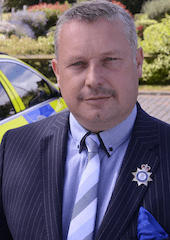
In the first 10 minutes of this year’s Drink Drive campaign, a driver was stopped and arrested for being twice over the legal limit. This was at 7am in the morning.
In spite of all the campaigns and efforts to remind people of the dangers of drink-driving, people continue to put their lives and the lives of others at risk.
Over the last three years, the number of people arrested for drink-driving in Cambridgeshire in December continues to be a huge concern: 96 in 2013, 75 in 2014 and 80 in 2015.
That’s why I have added my voice to the Institute of Alcohol Studies’ national campaign calling for a reduction in the drink-drive limit from 80mg to 50mg. I wholeheartedly believe changing the law and introducing a lower limit, together with strong enforcement and tougher sentencing for offenders, would help make our communities safer.
Although people are generally becoming more aware of the dangers of drink-driving, we always see a spike at this time of year. This is unacceptable behaviour and continues to put huge pressure on our local frontline. Not only can the consequences destroy the lives of those affected but can also have a devastating impact on our officers.
Both the Chief Constable and I remain very concerned about the issue of road safety in our county. A number of fatalities on our roads in the last few months has brought the issue even more sharply into focus. Therefore, pursuing a number of strategies to reduce the number of people killed or seriously injured on our roads remains a high priority.
England and Wales continue to have one of the highest drink-drive limits in the world. And it is not only drunk drivers who are affected: nationally 60% of those killed or injured in drink-driving incidents are people other than the driver, such as passengers, pedestrians and cyclists.
Lowering the drink-drive limit to 50mg/100ml blood would reduce drink-driving deaths by at least 10%. And that’s what I want to see happen here in Cambridgeshire. A change in the law would encourage people to think about their actions and send a clear message that drink-driving is not acceptable – at this time of year or any other.
I backed Alcohol Awareness Week in November to remind people to make sure they understand current guidance around recommended limits of alcohol: the campaign was a good opportunity to highlight the impact drinking can have on our health. This year, the campaign focussed on a number of health related issues such as alcohol and cancer, alcohol and depression, and alcohol and brain damage. But the best advice is to avoid alcohol altogether when driving. Drinking has implications for all of us – individuals and the public service that have to pick up the pieces when things go wrong.
The Constabulary’s Think! Campaign continues to remind people of the risks of drink-driving. Officers will continue to carry out stop checks to target people who put people in danger. But the fact remains that too many lives are still devastated by the impact of drink-driving.
Everyone likes to enjoy themselves at this time of year but we all need to remember the huge responsibility we take once we sit behind the wheel. I would urge anyone planning a night out over the festive period to know their limit and stop well before any damage occurs. I remain thoroughly committed to working with our local partners to tackle this issue in Cambridgeshire.
The Constabulary has set up a confidential reporting line so if you know a drink driver, or see someone getting behind the wheel who has been drinking, please help by calling 0800 032 0845.
You can download an app at http://morning-after.org.uk which will help you calculate how long you need to wait before you are safe to drive.
Written by Jason Ablewhite, Police and Crime Commissioner for Cambridgeshire and Peterborough.
All IAS Blogposts are published with the permission of the author. The views expressed are solely the author’s own and do not necessarily represent the views of the Institute of Alcohol Studies.
